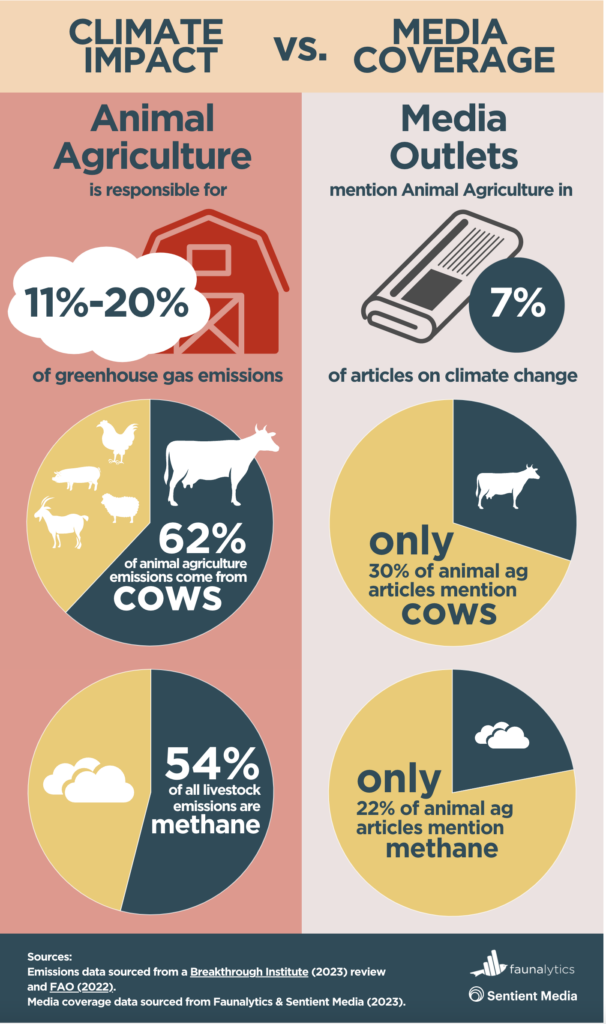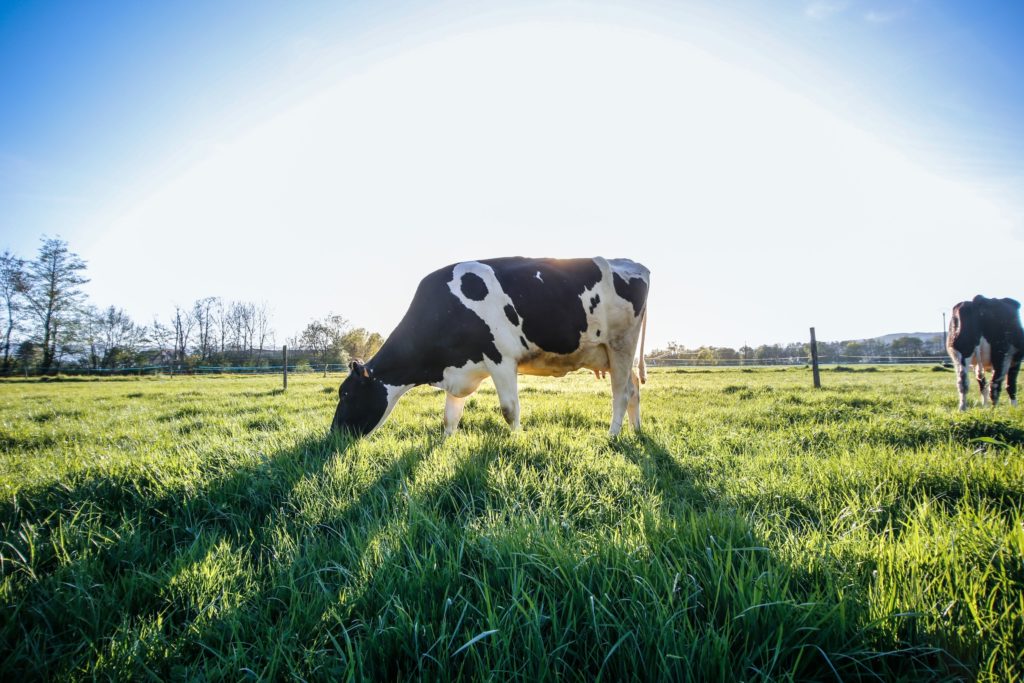Media’s ‘Missed Steak’: The Underrepresentation Of Livestock’s Climate Impact
3 Mins Read
A mere 7 percent of climate-related articles referenced livestock farming and its effects on climate change were scarcely discussed, says a new report.
There is a persistent gap between the conclusions of scientific research and public comprehension, says a recent report by Faunalytics and Sentient Media.
The organizations say media coverage of climate change frequently neglects to spotlight specific influential subsectors within livestock farming.

The findings
Often, livestock farming is painted as a casualty of climate change rather than a major contributor. Analyses of recent coverage showed that articles commonly emphasized the negative impact of climate change on the animal agriculture industry, including issues like livestock losses due to climate-related disasters.
The role of this sector in exacerbating climate change, however, was typically overlooked.
Cattle farming, for example, is responsible for approximately 62 percent of livestock farming emissions, but only 30 percent of livestock farming articles mentioned cows. Furthermore, methane, which makes up a substantial 54 percent of the industry’s emissions, only appeared in 22 percent of animal agriculture discussions.

According to a Purdue study, the assertion that ‘reducing meat intake is beneficial for the environment’, is now at a record-low acceptance among the public — a disconnect the organizations say can be attributed to various factors including a lack of quality consumer-facing information on the issues.
Despite the decline in consumer acceptance, climate experts have repeatedly emphasized that the ambitions set forth in the Paris Agreement, which includes maintaining global warming within 1.5°C over pre-industrial levels, is virtually unattainable unless the global populace reduces meat intake.
Meat and dairy production are responsible for as much as 19.6 percent of total global emissions according to numerous studies, the groups say. Top-tier food and climate organizations around the world advocate for a shift toward plant-based diets, especially in the wealthier countries where an abundance of plant-based options are available.
Recommendations
The EAT-Lancet Commission suggests that Americans would need to cut down on animal products by approximately 70 percent daily, with the most significant cuts being made in red meat and chicken consumption, by 92 percent and 81 percent respectively.
Livestock production is a key driver of methane — a greenhouse gas 80 times more potent than CO2. Given methane’s significant role in escalating global warming, accounting for over a quarter of all cases, it is vital to curb these emissions, the organizations say. Current projections suggest that, should emissions proceed unhindered, the food industry alone could push global temperatures beyond the 1.5°C threshold.

Recognizing the media’s role in educating the public on pressing matters such as climate change, is essential in achieving this goal, the organizations say.
The groups say discussing the consequences of livestock farming in climate content would increase the public’s understanding of the connection between animal agriculture and climate change.
Every story is a climate story, the groups say.
“Whether your role is reporting on the Farm Bill or writing new recipes, all food and farming stories are an opportunity to inform readers about how what we eat drives climate change,” the report says.
The report also encourages media to show readers the connection between what we eat and the increasing number of climate emergencies. “Many climate stories are covering climate as a crisis by reporting on emergencies like drought, flooding, and deforestation,” the report says. “But the deforestation and drought that harms animals are also driven by what we eat. Stories about harm to animals or costs to farmers are also an opportunity to make the connection to our own behavior and steps that we can take to make an impact.”




